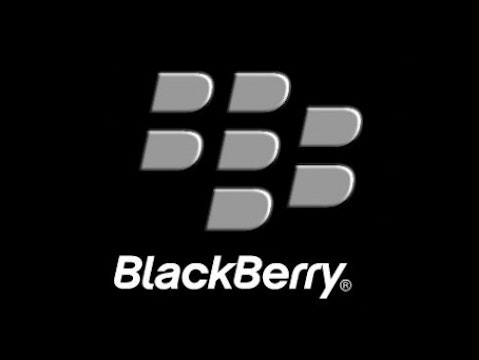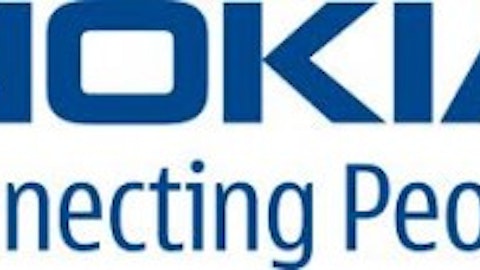If there’s any one factor that I need to choose to describe Waterloo, Ontario-based Research in Motion, or now Research In Motion Ltd (NASDAQ:BBRY)’s present downfall, I would undoubtedly opt for the management’s “lack of credibility.” The very fact that Mr. Heins and his men were not keen to discuss the sales figures of the company’s BB10 based devices until quite sometime into the quarterly conference call was proof enough that this company can certainly not be trusted anymore. And the Street responded to the real picture, as stock prices dropped by a whopping 29% for the once-acclaimed handset manufacturer.
While it’s true that the company’s losses have been far less than in the previous year and the cash pile continues to remain substantial (going up to $3.1 billion along with zero debt), that still doesn’t discount the fact that as much as 60% of Research In Motion Ltd (NASDAQ:BBRY)’s quarterly unit sales comprised handsets running on the older operating system. That’s a big disappointment, considering the fact that it’s been a full three months since the launch of the company’s make-or-break Z10 touch-based handset in the crucial US region. And the Z10 based on its newest BB10 operating system, was supposed to be the company’s answer to Apple Inc. (NASDAQ:AAPL)’s iOS-based iPhone and Samsung’s Galaxy line of handsets based on Google Inc (NASDAQ:GOOG)’s Android operating system.
The cons outnumber the pros
That apart, Research In Motion Ltd (NASDAQ:BBRY)’s subscriber base also fell by a considerable 4 million on a q-o-q basis, signifying the fact that customers are just walking into the arms of more attractive competitors. And that inevitably leaves good, old BlackBerry saddled with an unwanted yet substantial q-o-q rise in inventories as well.
So what are the real behind-the-scenes factors that might have led to most analysts preparing to write BlackBerry’s obituary these days? Time to do a reality check that should also be able to tell us why the company’s future prospects might as well be zero.
The broken ‘enterprise’ backbone
To start with, the fall in subscriber base for Research In Motion Ltd (NASDAQ:BBRY) is closely related to the fall in high margin generating service-based revenues for the company. This is because its subscriber base (or what’s left of it) mainly comprises government agencies, lawyers and professionals, in short the highly lucrative enterprise segment. However, recent tech trends such as the Bring-Your-Own-Device (BYOD) scenario has worked against BlackBerry, with offices allowing their employees to carry their own Apple Inc. (NASDAQ:AAPL) iPhones or Google Inc (NASDAQ:GOOG)’s Android-based devices.
And even if Google’s Android software platform has still not successfully managed to override the commonly-held perception about its susceptibility to malware, there’s always Apple’s walled-garden approach (read almost zero susceptibility to malware) to make up for that. And one should not forget rival Nokia Corporation (ADR) (NYSE:NOK)’s tie-up with Redmond-based Microsoft Corporation (NASDAQ:MSFT) that has resulted in the former’s offering of the Windows 8 phone operating system. After all, at the end of the day, Windows continues to remain the enterprise customer’s favorite operating software.
Nokia’s low-cost strategy
Nokia Corporation (ADR) (NYSE:NOK), despite its widely-publicized losses, continues to offer devices in a wide range of prices as well, with sales of its lower-priced handsets somewhat making up for the slim revenues generated by its higher-end Lumia line of phones. The strategy has resulted in rich gains in emerging markets such as India and other South East Asian countries, with the company’s Asha range of handsets having done especially well in recent quarters.
In fact, the company has gone ahead a step further and launched amazingly low priced handsets such as the Nokia 105 worth a meager $20, for people in cost-conscious emerging nations that are yet to upgrade to the smartphone experience. That should also give some time to Nokia Corporation (ADR) (NYSE:NOK) as the company waits for the Lumia range to gain popularity. Incidentally, a recent survey has revealed that Nokia’s Windows phone operating platform recorded a steady rise in market share at 5.6%, placing it a notch ahead of BlackBerry at third place, after Android and iOS.
Even Apple fails to convince
On the other hand, Research In Motion Ltd (NASDAQ:BBRY) can take some satisfaction from the fact that even Apple, a seemingly overwhelming competitor, also seems to bear the brunt of a distinct and similar lack of credibility as displayed by its investors. With Apple Inc. (NASDAQ:AAPL) failing to bring out a ground-breaking product for a long time now, management led by Tim Cook is finding it real hard to stem the steady decline in company stock prices.
And although the company has now come out with its much-touted iOS 7 operating system, Google Inc (NASDAQ:GOOG)’s Android continues to have a stranglehold on the minds of smartphone users with a whopping 52.4% market share in the three-month period between April and May 2013, according to research agency comScore. On the other hand, Apple’s iOS-based market share, although substantial, remains a distant second at 39.2%. At the same time, if Apple Inc. (NASDAQ:AAPL) does come out with a cheaper iPhone to gain more market share in cost-conscious emerging nations such as India and China, that would be the end for Research In Motion Ltd (NASDAQ:BBRY)’s hopes of a revival in sales.
The pricing factor
Any talk of emerging markets also brings us to the second most important reason why Research In Motion Ltd (NASDAQ:BBRY) should call it a day – its disastrously high pricing policy for the Z10 and Q10 in those regions, something which I had already hinted at before.
Anyone who has even a rough idea of the current smartphone market dynamics is aware of the fact that pricing remains the key to winning more market share in emerging nations such as India where consumers are much more cost conscious than their counterparts in developed regions. Having said that, BlackBerry seems to have committed marketing hara-kiri by setting an average $700-plus price tag for the Z10 and the Q10, considerably more than some of market leader Samsung’s newest and best offerings in those regions.
Some final thoughts
Research In Motion Ltd (NASDAQ:BBRY) is in a really bad state now, and the situation is only likely to worsen in the near future. While it’s true that a transition into a new operating ecosystem takes time, the company is simply losing too many customers at a rapid pace to sustain till then. Pricing has also been a complete disaster till date and the enterprise scenario continues to be as bleak as ever, and that’s despite all the company’s newest gimmicks such as the Research In Motion Ltd (NASDAQ:BBRY) Balance feature.
And as if that’s not enough, the company’s painfully acquired cash pile is also set to dwindle, given the management’s lofty plans at more future investment. This is one stock that will continue to be nothing but a burden for a long time to come and investors would do well to get rid of it altogether from their tech portfolio, even if it means incurring a loss as of now.
The article Why It’s Time To Bid A Fond Adieu to BlackBerry originally appeared on Fool.com and is written by Subhadeep Ghose.
Subhadeep Ghose has no position in any stocks mentioned. The Motley Fool recommends Apple. The Motley Fool owns shares of Apple Inc. (NASDAQ:AAPL). Subhadeep is a member of The Motley Fool Blog Network — entries represent the personal opinion of the blogger and are not formally edited.
Copyright © 1995 – 2013 The Motley Fool, LLC. All rights reserved. The Motley Fool has a disclosure policy.






